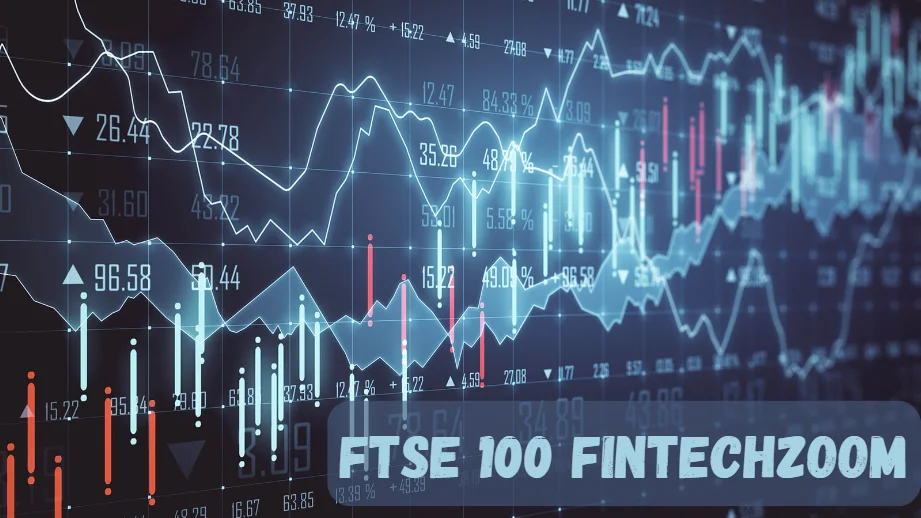In the ever-evolving landscape of financial markets, the FTSE 100 Index stands out as one of the key indicators of economic health and investor sentiment in the United Kingdom. The Financial Times Stock Exchange 100 Index, or FTSE 100, is a market capitalization-weighted index that comprises the 100 largest publicly traded companies listed on the London Stock Exchange (LSE). This article will delve into the FTSE 100’s significance, composition, and its influence on the global financial landscape, as well as insights from FintechZoom.com FTSE 100.
What is the FTSE 100?
The FTSE 100 Index was launched in January 1984, and it has since become a cornerstone of the UK stock market. The index is designed to represent the performance of the largest companies in the UK, providing investors with a snapshot of the market’s overall health. The FTSE 100 includes various sectors, such as financial services, energy, pharmaceuticals, and consumer goods, reflecting the diverse nature of the UK economy.
Key Features of the FTSE 100
- Market Capitalization-Weighted: The FTSE 100 is calculated based on the market capitalization of its constituent companies. This means that companies with larger market values have a more significant impact on the index’s performance. For instance, a company like AstraZeneca, which has a substantial market cap, will influence the FTSE 100 more than a smaller company like Whitbread.
- Real-Time Calculations: The index is calculated in real-time, allowing investors to see the FTSE 100’s performance throughout the trading day. This feature makes it a reliable indicator for traders and investors looking to gauge market sentiment.
- Regular Updates: The composition of the FTSE 100 is reviewed quarterly, ensuring that it reflects the current market landscape. Companies can be added or removed from the index based on their market capitalization and performance.
Importance of the FTSE 100
Economic Indicator
The FTSE 100 serves as a vital economic indicator for the UK. When the index is performing well, it often suggests a thriving economy, while a declining index may signal economic challenges. Investors and analysts closely monitor the FTSE 100 to assess the overall health of the UK market.
Investment Opportunities
For investors, the FTSE 100 offers a range of investment opportunities. Many investment funds, exchange-traded funds (ETFs), and pension funds track the index, providing investors with exposure to some of the UK’s largest and most established companies. This diversification can help mitigate risk while still allowing for potential growth.
Global Influence
The FTSE 100’s significance extends beyond the UK. As one of the major stock indices in the world, it attracts international investors and influences global markets. Changes in the FTSE 100 can impact foreign exchange rates, commodity prices, and even global equity markets.
Notable Companies in the FTSE 100
The FTSE 100 is home to several globally recognized companies. Here are a few notable constituents:
- AstraZeneca: A leading pharmaceutical company, AstraZeneca is renowned for its research and development of innovative medicines, including its significant role in the COVID-19 vaccine.
- HSBC Holdings: One of the world’s largest banking and financial services organizations, HSBC operates globally, offering a wide range of financial products and services.
- Unilever: A consumer goods giant, Unilever produces and sells products in various categories, including food, beverages, and personal care. Its diverse portfolio makes it a staple in the FTSE 100.
- BP: As one of the world’s leading oil and gas companies, BP plays a crucial role in the energy sector. The company’s performance is often tied to global oil prices and economic conditions.
- Diageo: A major player in the beverage industry, Diageo is known for its premium alcoholic brands, including Johnnie Walker and Guinness. The company’s global reach and strong brand portfolio contribute to its presence in the FTSE 100.
Analyzing FTSE 100 Performance
Historical Trends
The FTSE 100 has experienced several significant trends since its inception. Initially, the index saw steady growth during the late 1980s and early 1990s, reflecting a booming economy. However, the dot-com bubble in the late 1990s and the financial crisis of 2008 led to periods of volatility.
In recent years, the FTSE 100 has faced challenges, including the uncertainty surrounding Brexit and the COVID-19 pandemic. However, the index has shown resilience, recovering from dips and adapting to changing market conditions.
Current Trends and Future Outlook
As of 2024, the FTSE 100’s performance remains influenced by several factors, including interest rates, inflation, and geopolitical events. Investors are particularly focused on the ongoing recovery from the pandemic and the implications of global economic shifts.
Insights from FintechZoom
According to insights shared by FintechZoom, the FTSE 100 is poised for potential growth as economic conditions stabilize. Investors are encouraged to consider sector performance when evaluating the index, as certain industries may outperform others based on emerging trends. For instance, technology and renewable energy sectors have shown promise, while traditional energy sources may face challenges.
Investing in the FTSE 100
How to Invest
Investing in the FTSE 100 can be achieved through various methods:
- Individual Stocks: Investors can purchase shares of individual companies listed on the FTSE 100, allowing them to tailor their investments based on personal preferences and risk tolerance.
- Exchange-Traded Funds (ETFs): ETFs that track the FTSE 100 provide an easy way for investors to gain exposure to the entire index without having to buy individual stocks. This approach offers diversification and liquidity.
- Mutual Funds: Many mutual funds focus on UK equities and include FTSE 100 companies in their portfolios. These funds are managed by professionals who select stocks based on specific investment strategies.
Risk Considerations
While investing in the FTSE 100 presents opportunities, it is essential for investors to consider the associated risks. Market volatility, economic changes, and geopolitical events can impact stock performance. Therefore, a well-diversified portfolio and a clear investment strategy are crucial.
Conclusion
The FTSE 100 Index remains a vital component of the UK financial landscape and a barometer for economic health. As investors navigate the complexities of the market, understanding the significance of the FTSE 100 and its constituent companies can inform their investment decisions. With insights from FintechZoom and a keen awareness of market trends, investors can position themselves for potential growth in this dynamic environment.



